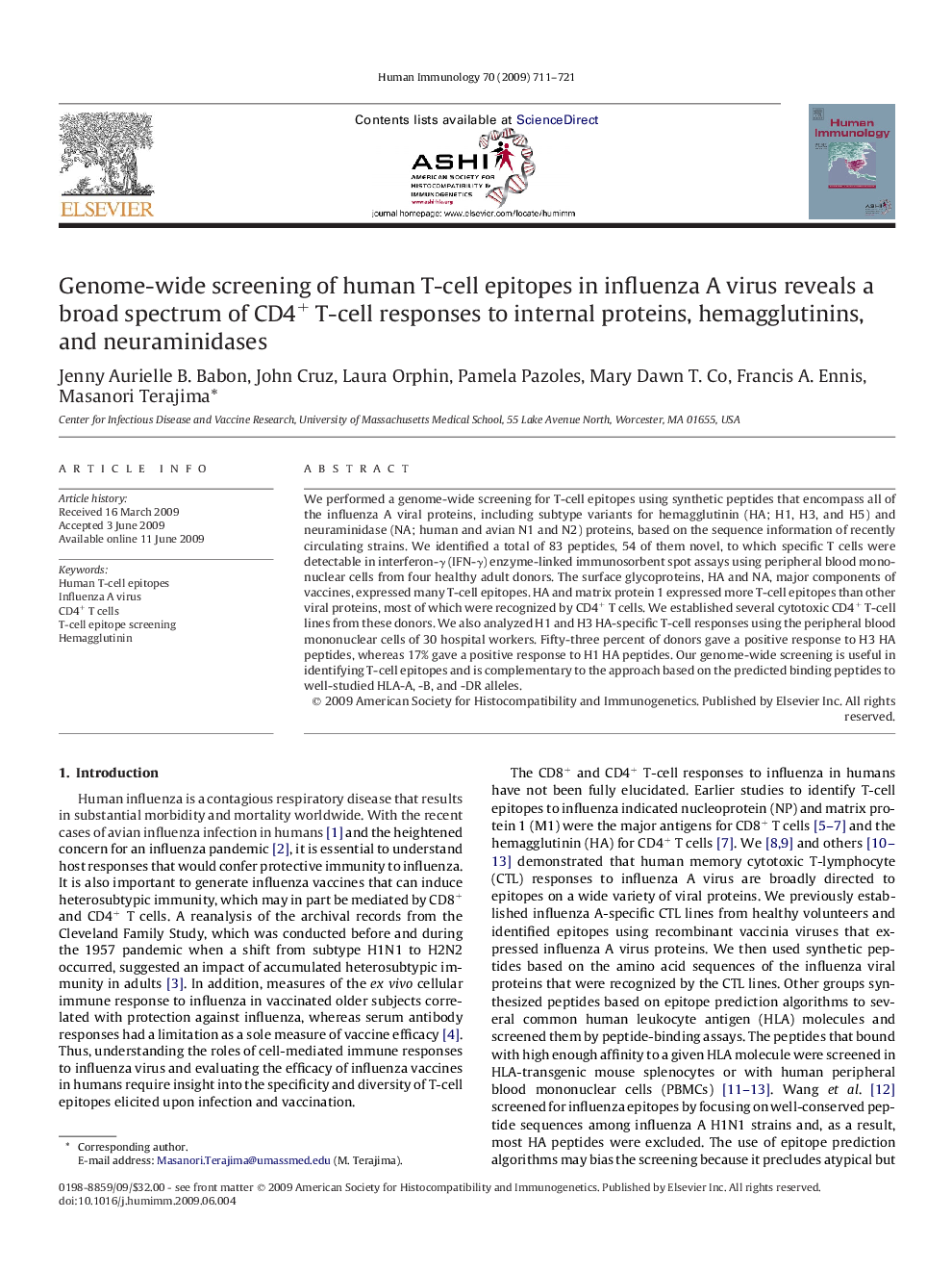| Article ID | Journal | Published Year | Pages | File Type |
|---|---|---|---|---|
| 3352191 | Human Immunology | 2009 | 11 Pages |
We performed a genome-wide screening for T-cell epitopes using synthetic peptides that encompass all of the influenza A viral proteins, including subtype variants for hemagglutinin (HA; H1, H3, and H5) and neuraminidase (NA; human and avian N1 and N2) proteins, based on the sequence information of recently circulating strains. We identified a total of 83 peptides, 54 of them novel, to which specific T cells were detectable in interferon-γ (IFN-γ) enzyme-linked immunosorbent spot assays using peripheral blood mononuclear cells from four healthy adult donors. The surface glycoproteins, HA and NA, major components of vaccines, expressed many T-cell epitopes. HA and matrix protein 1 expressed more T-cell epitopes than other viral proteins, most of which were recognized by CD4+ T cells. We established several cytotoxic CD4+ T-cell lines from these donors. We also analyzed H1 and H3 HA-specific T-cell responses using the peripheral blood mononuclear cells of 30 hospital workers. Fifty-three percent of donors gave a positive response to H3 HA peptides, whereas 17% gave a positive response to H1 HA peptides. Our genome-wide screening is useful in identifying T-cell epitopes and is complementary to the approach based on the predicted binding peptides to well-studied HLA-A, -B, and -DR alleles.
